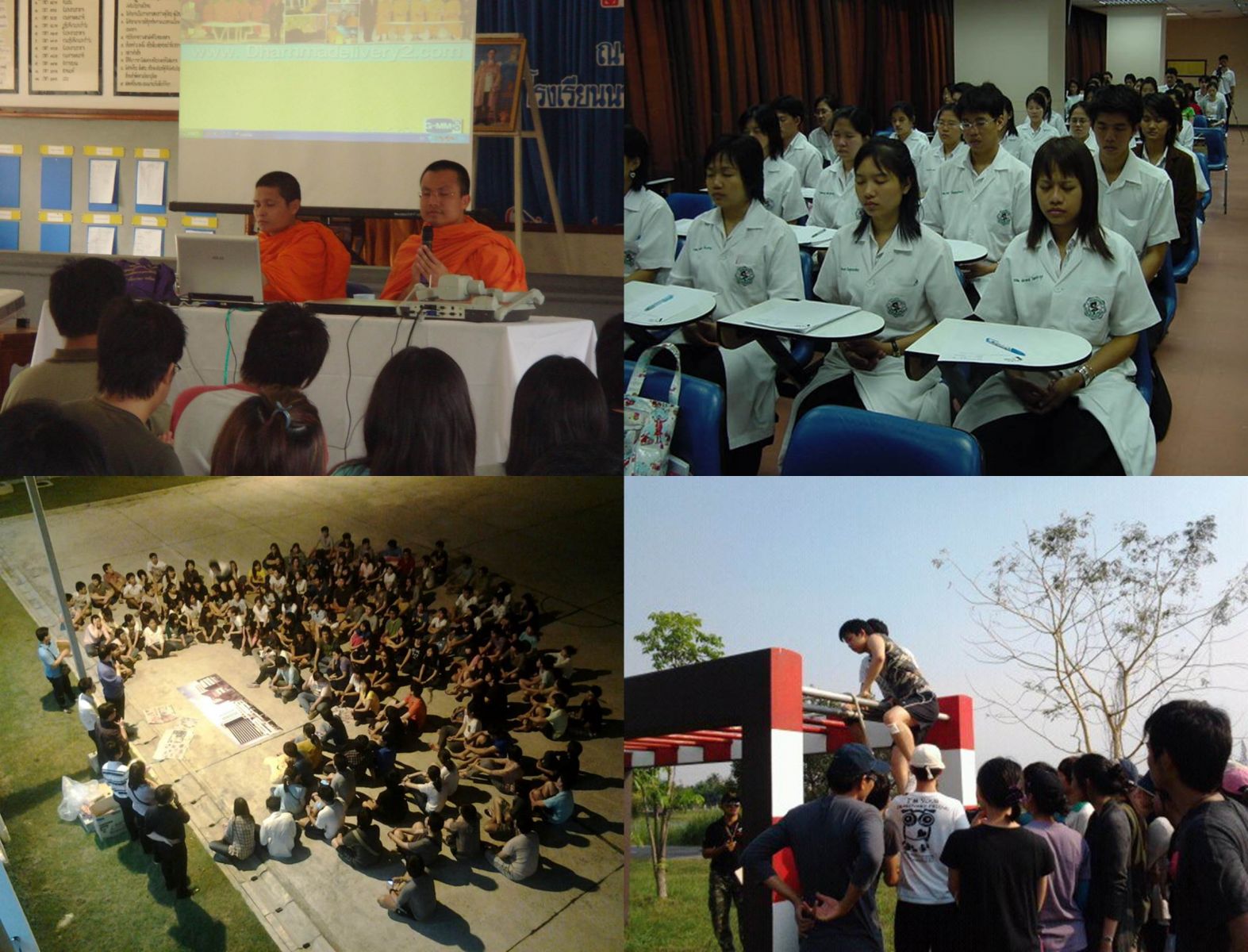| ePOSTER | ||
| Theme: 2JJ Communication |

|
| Abstract Title |
 |
|
| Development of communication skills in medical students of Srinakharinwirot University, Thailand | ||

|
Authors: |
Laddawal Phivthong-ngam Panunat Muangnoi Suppasit Sretprasert |
Institutions: | Faculty of Medicine, Srinakharinwirot University - Bangkok - Thailand Faculty of Humanities, Srinakharinwirot University - Bangkok - Thailand |
One of ethical conflicts in medical ethics is traceable back to a lack of communication. Communication breakdowns, between patients and their healthcare team, between family members, or between members of the medical community, can lead to disagreements and strong feelings. These breakdowns should be remedied, and many apparently insurmountable "ethics" problems can be solved with open lines of communication.
The Faculty of medicine, Srinakharinwirot University has realized this problem and developed the medical ethics camp with the co-operation of the Armed Forces Academies Preparatory School to develop communication skills for the medical students.
Medical ethic camp for the fourth year students was afforded for 2 weeks. First week, the contents were focused on the lectures of ethics and communication theories, movies about communication issues, and also group activities to solving ethical dilemmas. In the second week, the students were focused on developing communication skills by military and Buddhism methods at Armed Forces Academies Preparatory School. The training by military methods included the clear, clean-cut communications between one to one, one to others in group, and between the groups. Those by Buddhism methods were self-communication, empathetic communication, and decreasing of gap between self and other tactic.
115 and 119 forth year medical students in academic year 2011 and 2012, respectively, were included in our study. Period of time in observing the camp was 2 years (academic years of 2011 and 2012).
Research tools were before- and after-camp rationales and communication skill evaluating tests. Those two tests offer the complex situations involved of medical ethics issued. Five evaluate indications with the total of 20 points as followed:
1. Analytical skill; solving ethical problems 7 points
2. Rational skill; giving reasons to support their ideas 7 points
3. Rational skill; making whole answer logically unified 7 points
4. Organizing skill; offering ordered idea and reasons 2 points
5. Writing skill; using clearance words and sentences 2 points
The researchers arranged state of development by the points into four states as followed:
A for a person who gained 16 to 20 points
B for a person who gained 11 to 15 points
C for a person who gained 06 to 10 points
D for a person who gained 00 to 05 points
Success in developing communication skills meaned individual medical students who improved their state from C to B, C to A, B to A, and from A to more points in A state. The improving from D to C was excluded, and counted as undeveloped.
|
Academic year |
Percent of students developing communication skills |
| 2011 | 94.70 |
| 2012 | 91.50 |

According to the results of two groups of the studies in each academic year, there are 90 percent of those students have succeed in developing communication skills. And for those who have no development and still are in the same state as before the training are considerate to have limitation of developing communication skills. Additionally, many researches found that the communication skill can be decreasing as time go by, in result those skills should be continually developed with difference practicing methods.
Kant, Immanuel. (1983). Ethical Philosophy. Translated by James W. Ellington. United States of America: Hackett Publishing Company.
Rawls, John. (1971) A theory of justice. Massachusetts: Harvard University.
Reath, Andrews. (2002). “Kant’s Theory of moral sensibility:respect for the moral law and the influence of inclination.” In Immanuel Kant: Groundwork of the metaphysic of morals in focus. Edited by Lawrence Pasternack. p .211-228. London: Routledge
 Send Email
Send Email